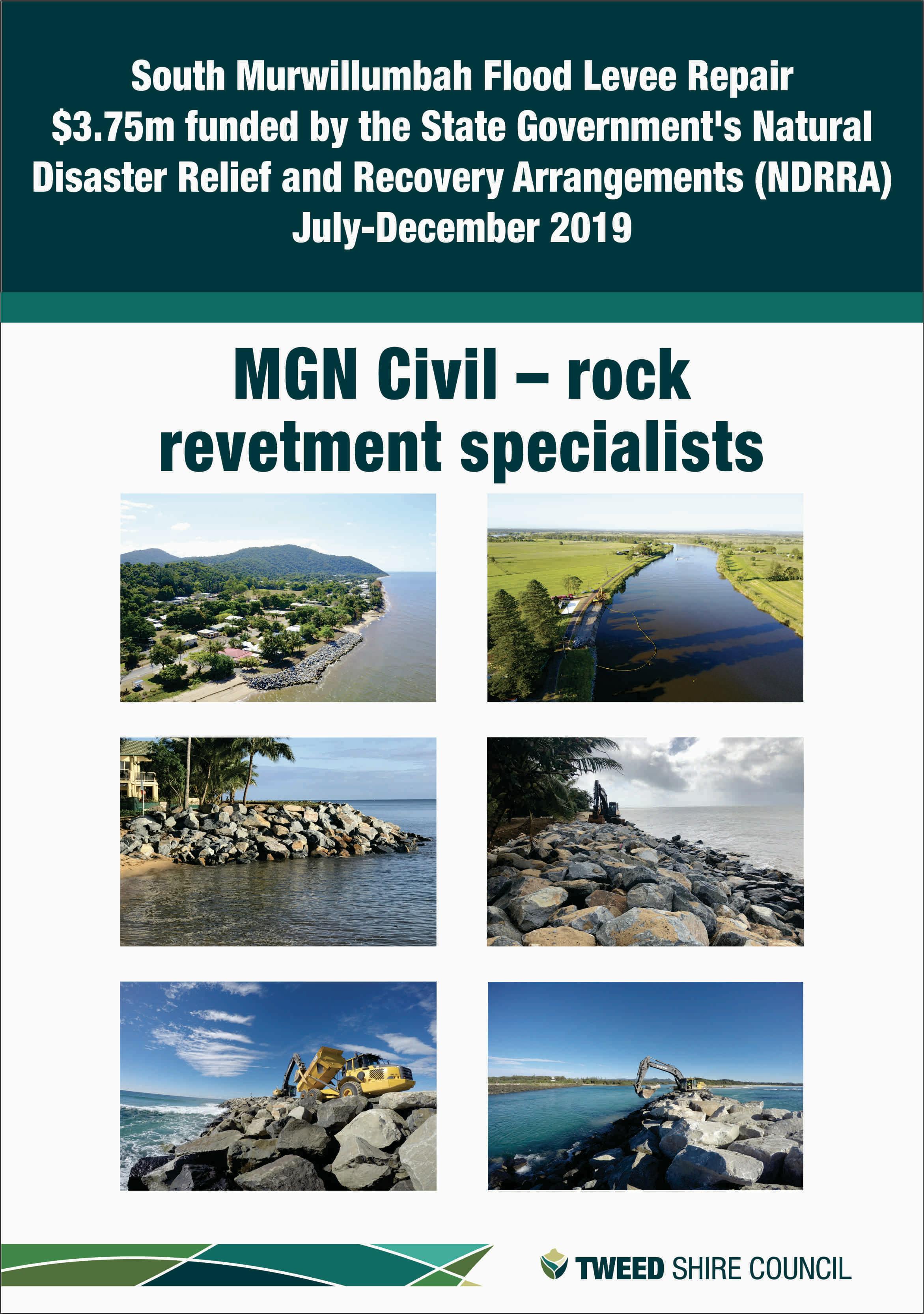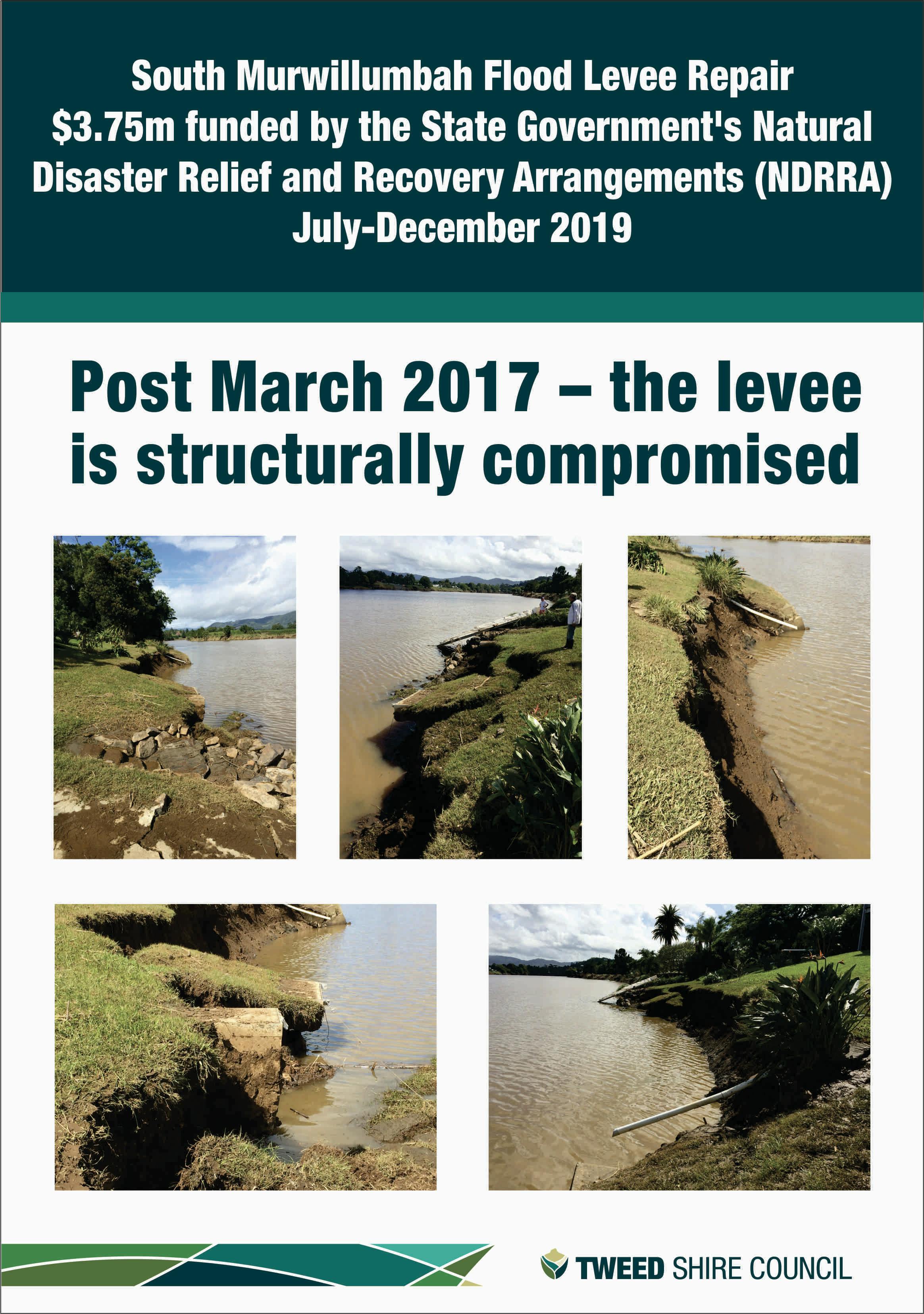South Murwillumbah Flood Levee Repair
Consultation has concluded

ABOUT
South Murwillumbah was hit hard by floods in March 2017 in the wake of Tropical Cyclone Debbie. At the time, the area was described by Mayor Cr Katie Milne as looking like a war zone. Many homes, businesses and public infrastructure were severely damaged and property losses were high. Six shire residents died in the floods, with one death occurring in South Murwillumbah. The suburb also was badly impacted in major floods in 1954, 1974 and 1989. Flooding rapidly cuts road access to the area and represents a significant risk to life.
The March 2017 flood in South Murwillumbah has been categorised as a >1% AEP (~1:100 year ARI) event. That means there is more than a one per cent chance that a flood of that size will occur in any given year. It does not mean that you won’t see another flood of that size for another 100 years.
The South Murwillumbah levee was designed to protect the area in a 20% AEP (~1:5 year ARI) event. That sized flood is much smaller than the event of March 2017 and there is a 20 per cent chance it will occur in any given year.
But in its current condition the levee will not afford the protection it was designed to provide because it is structurally compromised as a result of the damage done in March 2017 when several metres of rushing waters overtopped the earthen structure, which sits atop the riverbank.
Sections of the levee have slumped; other sections have eroded and in one section the crest of the levee has broken. In the unseen structure below the water, the toe of the levee has been washed away and the riverbank undercut by floodwaters.
The levee is further compromised by drainage pipes and the roots of trees, which allow floodwaters to penetrate the earthen structure. The large root balls of trees can tear open earthen levees when they fall. Structures on the levee, such as stairs to the river, pontoons and boat ramps have the potential to cause turbulence when subjected to flood flows and increase the risk of erosion.
While Council has undertaken some temporary measures to ‘hold’ the levee, in its current condition it remains vulnerable to collapse in a small flood and riverside lands, both private and public holdings, may further erode and fall in the river.
Council has received $3.75 million in Natural Disaster Relief and Recovery Arrangements (NDRRA) funding to repair the levee.
NSW Public Works Advisory has been engaged to design and manage the levee repair. External contractor MGN Civil has been enagaged to do the works.

